PPSA Asks Supreme Court to Hear X Corp.’s Constitutional Case Against Surveillance Gag Orders7/10/2024
PPSA announced today the filing of an amicus brief asking the U.S. Supreme Court to take up a case in which X Corp., formerly Twitter, objects to surveillance and gag orders that violate the First Amendment and pose a threat to the Fourth and Sixth Amendments as well.
When many consumers think of their digital privacy, they think first of what’s on their computers and shared with others by text or email. But the complex, self-regulating network that is the internet is not so simple. Our online searches, texts, images, and emails – including sensitive, personal information about health, mental health, romances, and finances – are backed up on the “cloud,” including data centers like X Corp.’s that distribute storage and computing capacity. Therein lies the greatest vulnerability for government snooping. The growth of data centers is prolific, rising from 2,600 to 5,300 such centers in 2024. And with it, so have government demands for our data. When federal agencies – often without a warrant – seek to access Americans’ personal data, more often than not they go to the companies that store the data in places like these data centers. For years, this power involved large social media and telecom companies. The power of the government to extract data, already robust, increased exponentially with the reauthorization of FISA Section 702 in April, which included what many call the “Make Everyone a Spy Act.” This provision defines an electronic communication service provider as virtually any company that merely has access to equipment, like Wi-Fi and routers, that is used to transmit or store electronic communications. On top of that, the government then slaps the data center or service provider with a Non-Disclosure Order (NDO), a gag order that prevents the company from informing customers that their private information has been reviewed. One such company – X Corp. – has been pressing a constitutional challenge against this practice regarding a government demand for former President Trump’s account data. PPSA has joined in an amicus brief supporting X’s bid for certiorari, asking the Court to consider the constitutional objections to government conscription of companies that host consumers’ data as adjunct spies, while restraining their ability to speak out on this conscription. In the case of X, the government has seized the company’s records on customer communications and then slapped the company with an NDO to force it to shut up about it. The government claims this secrecy is needed to protect the investigation, even though the government itself has already publicized the details of its investigation. Whatever you think of Donald Trump, this is an Orwellian practice. PPSA’s amicus brief informed the Court that the gag order “makes a mockery of the First Amendment’s longstanding precedent governing prior restraints. And it will only become more frequent as third-party cloud storage becomes increasingly common for everything from business records to personal files to communications …” The brief informs the Court: “NDOs can be used to undermine other constitutionally protected rights” beyond the First Amendment. These rights include the short-circuiting of Fourth Amendment rights against warrantless searches and Sixth Amendment rights to a public trial in which a defendant can know the evidence against him. Partial solutions to these short-comings are winding their way through the legislative process. Sen. Mark Warner, Chairman of the Senate Intelligence Committee, introduced legislation to narrow the scope of businesses covered by the new, almost-universal dragooning of businesses large and small as government spies – though House Intelligence Chairman Mike Turner is opposing that reasonable provision. Last year, the House passed the NDO Fairness Act, which requires judicial review and limited disclosures for these restraints on speech and privacy. As partial solutions wend their way through Congress, this case presents a number of well-defined concerns best defined by the Supreme Court. “Curtilage” is a legal word that means the enclosed area around a home in which the occupant has an expectation of privacy. Within the zone of curtilage, the Fourth Amendment implications usually force law enforcement officers to obtain a warrant before they can enter. Where curtilage begins and ends has long been a matter of fine, Jesuitic distinctions, hotly contested in courts across the country.
Sometimes the boundaries are obvious. In a landmark case, the U.S. Supreme Court in 2021 held in Lange v. California that a police officer who followed a driver into his garage entered his curtilage. The officer had no right to do so without a warrant. PPSA was pleased to see the Court adopt logic similar to our amicus brief in Lange. So much for garages. Now what about doorknobs? Terrell McNeal Jr. of Mankato, Minnesota, was arrested after police obtained a probable cause warrant to enter his apartment and found controlled substances, cash, and guns. The evidence behind the warrant was derived from his doorknob. A police officer had earlier obtained a code from the apartment’s landlord to enter the structure’s interior communal space. He had proceeded to swab the doorknob of McNeal’s front door. It tested positive for two controlled substances. That was the basis of the warrant. The doorknob was tainted, to be sure. But that left a nagging legal question: Was the search warrant itself tainted by a violation of McNeal’s curtilage? A district court did not think so. It bought the prosecution’s argument that the door handle and lock were outside of McNeal’s home. A county prosecutor made this point on appeal: “If the court looks at the door itself, it prevents people from looking into the home. That doesn’t make the outside of the door curtilage.” Actually, it does, ruled the Minnesota Court of Appeals. On June 10, the appellate court found that officers have “no implied license to remove material from the door handle and lock for laboratory testing.” The court did distinguish this case from one in which a search warrant was obtained after a drug-sniffing dog found the aromatic traces of narcotics in the air in front of an apartment. But the officers in the McNeil case, the court ruled, “went a step further and collected a sample from a door handle and lock that were physically attached to and indivisible from appellant’s home.” The Minnesota Court of Appeals made the correct decision, voiding the conviction. As for McNeal, the authorities kept him in prison since his arrest more than two years ago, until the appellate court ruled in his favor. But at least the court recognized that swabbing any part of a home without a warrant is a violation of the Fourth Amendment. The doxing of donors is a danger to our democracy.
When donors give to a controversial cause, they count on anonymity to protect them from public backlash. This is a principle enshrined in law since 1958, when the U.S. Supreme Court protected donors to the NAACP from forcible disclosure by the State of Alabama. Undeterred by this precedent, California tried to enforce a measure to capture the identities of donors and hold them in the office of that state’s attorney general, despite the fact that the California AG’s office has a history of leaks and data breaches. Surprisingly, the federal Ninth Circuit upheld that plan. The Project for Privacy and Surveillance Accountability filed a brief before the U.S. Supreme Court arguing that this policy is dangerous, not just to the robust practice of democracy, but to human lives. Citizens have lost their jobs, had their businesses threatened, and even been targeted for physical violence, all because they donated to a political or cultural cause. In 2021, the Supreme Court agreed with PPSA, reversing a Ninth Circuit opinion in Americans for Prosperity v. Bonta. Still, the drive to expose donors – whether progressives going after gun rights organizations or conservatives going after protest organizations – remains a hot-button issue in state politics across the country. Politicians and groups are eager to know: Is George Soros or the Koch Foundation or name-your-favorite-nemesis giving money to a cause you oppose? Thanks to the work of the People United For Privacy (PUFP) foundation, that push to expose is now stopped cold in 20 states. With help from PUFP, bipartisan coalitions in 20 states have adopted the Personal Privacy Protection Act (PPPA) to provide a shield for donor privacy by protecting their anonymity. This movement is spreading across the country, with Alabama, Colorado, and Nebraska having passed some version of this law just this year. “Every American has the right to support causes they believe in without fear of harassment or abuse of their personal information,” says Heather Lauer, who heads People United for Privacy. “The PPPA is a commonsense measure embraced by lawmakers in both parties across the ideological spectrum.” Supporters have ranged from state chapters of the ACLU, NAACP, and Planned Parenthood to pro-life groups, gun rights groups, and free market think tanks. Thanks to this campaign, 40 percent of states now protect donors. For the remaining 60 percent, the power of the internet can expose donors’ home addresses, places of work, family members, and other private information to harassers. The need to enact this law in the remaining 30 states is urgent. Still, securing donor protection in 20 states is a remarkable record given that People United for Privacy was only founded in 2018. We look forward to supporting their efforts and seeing more wins for privacy in the next few years. The surveillance state is hitting small businesses hard lately. If the “Make Everyone a Spy” provision weren’t enough, the Corporate Transparency Act (CTA) imposes sweeping disclosure requirements on “beneficial owners” of small businesses, with harsh punishments for mistakes on an official form.
After the National Small Business Association sued the Treasury Department, a federal court declared the CTA unconstitutional. It issued a scholarly opinion that explored the nuances of Congress’s power to regulate interstate commerce. Treasury appealed to the Eleventh Circuit. In our amicus brief, PPSA tells the Eleventh Circuit that the lower court got it right, but that there’s an easier way to resolve this case. We inform the court that the Fourth Amendment provides the “straightforward and resounding answer” that the CTA is unconstitutional. PPSA warns that the CTA’s database provisions pose an unprecedented threat to Americans’ privacy that are “even more disturbing” than the new rule’s disclosure requirements. We explain that the information collected from tens of millions of beneficial owners will be stored in what the government calls an “accurate, complete, and highly useful database” that can be searched by multiple federal agencies, no warrant required. And while the government claims this data will be used to catch tax cheats, the CTA says it will be used in conjunction with state and tribal authorities, who have no power to enforce federal tax laws. Creating such a database for warrantless inspection by the FBI, IRS, DEA, and Department of Homeland Security is obviously ripe for abuse. Our brief explains how this database could be used to identify owners of businesses with an ideological character – like political booksellers – and single out their investors for retaliation. This is not a far-fetched hypothetical. Many agencies, including the Treasury Department, have engaged in politically motivated financial investigations, documented in detail by the House Judiciary Committee. Our brief notes that the database will be so sophisticated that it should be evaluated under a U.S. Supreme Court precedent addressing high-tech surveillance, just as the Fourth Circuit did for Baltimore’s database-driven aerial surveillance program. And that precedent explains that surveillance tools can’t be used to undermine the sort of privacy that existed when the Fourth Amendment was adopted. We told the court: “This database thus has the sort of ‘depth, breadth, and comprehensive reach,’ that is simply incompatible with ‘preservation of that degree of privacy against government that existed when the Fourth Amendment was adopted.’” As pernicious as the database itself is, recent advances in technology make it even worse. With modern machine learning, seemingly innocuous personal details can be linked up in disturbing ways. For instance, researchers have known how to identify authors based on a collection of anonymous posts since 2022. PPSA points out that the government could identify authors with views it dislikes, see if they pop up in the beneficial owner database, and have multiple agencies launch pretextual investigations. Next, we address how advancing AI technology could make such surveillance even more potent, then urged the court not to “leave the public at the mercy of advancing technology,” but to preserve Founding-era levels of privacy despite the march of technology. Readers might notice a pattern of AI exacerbating existing privacy invasions, from mass facial recognition to drone surveillance to a proliferating body of databases. So far, the government has relied on the “special needs” exception. This rule allows the government to keep its own house in order, with the warrantless drug testing of schoolteachers and top-secret national security employees. But this authority is often abused, as we’ve noted previously. Our brief explains that this exception doesn’t even apply to information collected to identify crimes – which is exactly what the government claims the CTA is supposed to help with. But the struggle for constitutional rights and privacy remains multilayered. If the CTA remains struck down, the government will still be purchasing vast amounts of Americans’ personal information from shady “data brokers.” That’s why we applauded the House recently for passing the Fourth Amendment Is Not For Sale Act, and urge the Senate to do so as well. Now it is up to the Eleventh Circuit to protect the American people from an overbearing government, hungry to track our every move. National Rifle Association v. Vullo In this age of “corporate social responsibility,” can a government regulator mount a pressure campaign to persuade businesses to blacklist unpopular speakers and organizations? Would such pressure campaigns force banks, cloud storage companies, and other third parties that hold targeted organizations’ data to compromise their clients’ Fourth as well as their First Amendment rights?
These are just some of the questions PPSA is asking the U.S. Supreme Court to weigh in National Rifle Association v. Vullo. Here's the background on this case: Maria Vullo, then-superintendent of the New York Department of Financial Services, used her regulatory clout over banks and insurance companies in New York to strongarm them into denying financial services to the National Rifle Association. This campaign was waged under an earnest-sounding directive to consider the “reputational risk” of doing business with the NRA and firearms manufacturers. Vullo imposed consent orders on three insurers that they never again provide policies to the NRA. She issued guidance that encouraged financial services firms to “sever ties” with the NRA and to “continue evaluating and managing their risks, including reputational risks” that could arise from their dealings with the NRA or similar gun promotion organizations. “When a regulator known to slap multi-million fines on companies issues ‘guidance,’ it is not taken as a suggestion,” said Gene Schaerr, PPSA general counsel. “It’s sounds more like, ‘nice store you’ve got here, it’d be shame if anything happened to it.’” The U.S. Court of Appeals for the Second Circuit reversed a lower court’s decision that found that Vullo used threats to force the companies she regulates to cut ties with the NRA. The Second Circuit reasoned that: “The general backlash against gun promotion groups and businesses … could (and likely does) directly affect the New York financial markets; as research shows, a business's response to social issues can directly affect its financial stability in this age of enhanced corporate social responsibility.” You don’t have to be an enthusiast of the National Rifle Association to see the problems with the Second Circuit’s reasoning. Aren’t executives of New York’s financial services firms better qualified to determine what does and doesn’t “directly affect financial stability” than a regulator in Albany? How aggressive will government become in using its almost unlimited access to buy or subpoena data of a target organization to get its way? We told the Court: “Even the stability of a single company is not enough; the government cannot override the Bill of Rights to slightly reduce the rate of corporate bankruptcies.” In our brief, PPSA informs the U.S. Supreme Court about the dangers of a nebulous, government-imposed “corporate social responsibility standard.” We write: “Using CSR – a controversial theory positing that taking popular or ‘socially responsible’ stances may increase corporate profits – to justify infringement of First Amendment rights poses a grave threat to all Constitutionally-protected individual rights.” PPSA is reminding the Court that the right to free speech and the right to be protected from government surveillance are intwined. Maxon v. Long Lake Township If someone sets a tall ladder against your fence, and leans out into your yard to take photographs, would that be a trespass? A court would surely affirm common sense and say that’s a trespass – even if the offender is merely leaning into the space over your property, touching nothing.
What if a nosy neighbor hoisted a Go-Pro on a long camera stick over your fence? Again, that would be a trespass. But what if you drew a line from the core of the Earth, through your backyard, to a point in outer space 280 miles above the planet? Is all that aerial space above your backyard protected? This is important because the “trespass test” is essential to how courts determine if government surveillance should or should not require a probable cause warrant to inspect a citizen’s property. Such questions emerge from the comments of an Associate Justice of the Michigan Supreme Court during oral argument last week in Long Lake Township v. Maxon. This case centers around whether local government should have obtained a probable cause warrant to send a drone to surveil a five-acre estate for the civil offense of collecting prohibited scrap. Is a drone more like the nosy neighbor or more like the camera on an airplane, or – given advances in technology – the sensors of a Google Earth satellite? The counsel for the township told the court: “Google has a tool where you can even draw, if you want to know whether it’s 50 feet from this house to this barn, or 100 feet from this house to this barn. You do that right on the Google satellite imagery. And so given the reality of the world we live in, how can there be a reasonable expectation of privacy in aerial observations of property?” The government’s argument seems to be that technology is so advanced that privacy is dead. And if privacy is dead, then should we scrap the Fourth Amendment as a quaint relic of the Eighteenth Century? Maxon’s counsel held fast to the idea that Google Earth cannot yet perform the kind of invasive, sensory-rich surveillance that a drone can do. He also noted that drones, limited by the FAA to fly under 400 feet, are necessarily low altitude. One Justice reacted to the assertion that if Google Earth could map a backyard as closely and intimately as a drone, that would be a search. “Technology is rapidly changing,” the Justice responded. “I don’t think it is hard to predict that eventually Google Earth will have that capacity.” U.S. Supreme Court case law has held that ordinary photographs from fixed wing aircraft flying into publicly navigable airspace, or from helicopters, do not violate the Fourth Amendment and thus do not require a warrant. Not so, however, for more advanced technology. For example, the Baltimore Police Department flew a plane with military technology developed for occupied Baghdad to take pervasive snapshots of Baltimoreans and their movements across 30-square miles. This technology is extraordinarily robust, able to record and track the movement of thousands of individuals and cars across a whole day. A federal court recognized that such super-sharp, comprehensive imagery necessarily invokes constitutional issues. An ACLU lawsuit against this war-zone surveillance of Americans resulted in the Fourth Circuit Court of Appeals finding the practice to be unconstitutional. Last week’s Michigan oral argument will likely be seen as another great step forward in the debate over aerial surveillance. At first, the discussion centered around altitude – as if the 400-foot limit of a drone made its closeness (like the nosy neighbor) the decisive factor. But the exchange points to the conclusion that the truly decisive factor is not altitude, but the level of intrusiveness of a given technology. How much information can a drone equipped with facial recognition, heat sensing, and other superhuman sensory capabilities glean from an overflight? Enough, we say, to qualify as a trespass requiring a probable cause warrant. In fact, such drones could gather even more information than an individual physically inspecting a property. Given that the U.S. military and the CIA already use satellite imagery to identify and follow individuals, it is not a stretch to say that Google Earth or something like it will soon have an ability to pierce the privacy of any domicile or anyone who walks outside. But that does not make such an invasion reasonable or destroy legitimate expectations of privacy. And if such a degree of intrusion into someone’s privacy – whether from a plane equipped with war-zone surveillance technology, or a Google Earth camera with slightly futuristic capabilities – then that, too, would constitute a trespass by Google requiring a probable cause warrant. The law already distinguishes between the incidental path of a passenger airplane and a deep search, like that of the Baltimore police aircraft. The same principle should apply to intrusive private conduct. A watcher who is at a sufficient altitude above an actual physical presence could still be considered a trespasser of sorts when peering into someone’s backyard at a level of detail impossible for a passenger on an ordinary overflight. That evolving technology allows intrusive invasions over greater distances does not negate any “reasonable expectations of privacy” by citizens – it just illustrates growing violations of those expectations. The Michigan court seemed to be alert to these dangers. Chief Justice Elizabeth T. Clement referred to the reasoning in PPSA’s amicus brief asking if the Supreme Court reversed itself to ultimately uphold the “exclusionary rule” discounting evidence that violates the Fourth Amendment. However Maxon is decided, this case will likely be remembered for logically leading to the idea that in aerial surveillance the Fourth Amendment is invoked by the degree of intrusion, not mere altitude. Long Lake Township v. Maxon In a brief before the Michigan Supreme Court, PPSA alerted the court to the danger of intimate searches of home and residents by relatively inexpensive drones now on the market.
Commercially available drones have thermal cameras that can penetrate beyond what is visible to the naked eye. They can be equipped with animal herd tracking algorithms that can enhance the surveillance of people. Drones can swarm and loiter, providing round-the-clock surveillance. They can carry lightweight, cell-site simulators that prompt the mobile phones of people inside the targeted home to give up data that reveals deeply personal information. Furthermore, PPSA’s brief states that drones “can see around walls, see in the dark, track people by heat signatures, and recognize and track specific people by their face.” These are some of the ramifications of a case now before the Michigan Supreme Court. This case began when Long Lake Township in Michigan, suspecting that Todd and Heather Maxon had violated an agreement not to add to a scrap pile of old cars on their five-acre estate, hired a private drone photography business to investigate. No warrant was issued for this surveillance. Michigan’s top court is now reviewing the ruling by a lower court that found that while warrantless drone surveillance of a residence violated the Fourth Amendment, the evidence should not be excluded from this civil case. PPSA argues that this lack of exclusion of tainted evidence threatens to open a Pandora’s box of pervasive surveillance that could pierce the privacy of virtually anyone inside any structure. PPSA cites ample precedent for the exclusion of the Maxon evidence. In Carpenter v. United States (2018), the U.S. Supreme Court made it clear that the Fourth Amendment applies to digital technologies. In that case, the Court excluded location information derived without a warrant from mobile phones. In Kyllo v. United States (2001), the Court found that the use of thermal images – which reveals the heat signature emanating from inside a home – requires a warrant. Compare Kyllo’s comparatively mild surveillance to the “stereo-camera” configuration of many commercially available drones that enable reconstruction of 3D images from 2D cameras. Such surveillance goes well beyond Kyllo, in which police simply used heat radiating from the external surface of the house to detect marijuana cultivation. “Ready-made drone packages, specifically designed for thermal surveillance flights, with the ability to create 3-dimensional maps from their footage, can be had for around $6,000,” PPSA informed the court. “For less than $10,000, police can obtain a specialized drone with superhuman sensory abilities and better maneuverability than a multi-million-dollar helicopter or plane,” PPSA told the court. Drone’s warrantless extraction of personal information far exceeds the Carpenter warrant requirement. PPSA’s filing addresses an error by the lower court. The Michigan Court of Appeals recognized that the Township had violated the Fourth Amendment in its use of drones. That court nonetheless found that the exclusionary rule did not apply in Maxon. PPSA declared: “The Exclusionary Rule is a judicially crafted remedy that gives teeth to the Fourth Amendment by excluding illegally obtained evidence when the privacy value of enforcing Constitutional rights outweighs social harm from excluding evidence.” PPSA concluded: “If the Fourth Amendment is to have any real meaning in this context, evidence obtained by illegal drone surveillance must be subject to exclusion.” The Michigan Supreme Court is hearing oral argument on this case this week. PPSA will follow the outcome of this important, precedent-setting case. The Supreme Court will consider whether to hear the Project for Privacy and Surveillance Accountability’s petition in Torcivia v. Suffolk County on Nov. 10.
The Second Circuit Court of Appeals ignored the obvious application of a SCOTUS ruling in Caniglia against the police for entering the home of a New York man to confiscate his guns on the basis of the “community caretaking” exception to the Fourth Amendment. The Second Circuit affirmed the right to do the same to another man in New York State on a similar, but more malleable “special needs” doctrine – which is essentially any priority the government deems important. PPSA hopes the Supreme Court grants its petition and takes this opportunity to reinforce the plain meaning of its ruling and the Fourth Amendment. Is a “special needs exception” to the Fourth Amendment much different from a “community caretaking exception?” PPSA filed a brief before the U.S. Supreme Court demonstrating that it is not.
The U.S. Supreme Court ruled in 2021 in Caniglia that the police acted improperly by entering a man’s home and confiscating his guns under the “community caretaking” doctrine – in which the police are making a “welfare check” rather than acting as law enforcement officers. The High Court saw through this precedent from the 1970s and ruled that supposedly “non-investigative” intrusions into a home are what they seem to be – plain violations of the Fourth Amendment. To the astonishment of many legal observers, the Second Circuit Court of Appeals ignored this unanimous Supreme Court opinion in a nearly identical case. In Torcivia v. Suffolk County, the Second Circuit applied a flexible “special needs exception” to the Fourth Amendment. One familiar example of this exception is when authorities decide that some local requirement, such as curbing drunk driving with spot checks, is necessary. But this case did not involve a car on the highway: it involved warrantless entry into a home and the confiscation of a citizen’s lawfully-owned firearms. The government responded to our petition for the Court to hear Torcivia with the straight-face argument that the community caretaking exception is not the special needs exception. No one claimed it was. But we told the Court that the “logic underlying the special needs exception is indistinguishable from the logic this Court rejected in Caniglia.” Our brief demonstrates to the Court that absent emergency circumstances or consent, if the “government can overcome the warrant requirement that has traditionally protected the home merely by pointing to an interest that the government feels is sufficiently strong, then the Fourth Amendment no longer serves as a meaningful limit on government power.” We added: “Respondents cannot escape that the Second Circuit applied the special needs exception to a seizure of firearms located in the home of a person not on probation or parole. That extension cannot be squared with this Court’s precedents or with the text, history, and tradition of the Fourth Amendment.” Torcivia v. Suffolk County: Amicus Briefs Highlight History, Law Behind the Castle Doctrine7/7/2022
New amicus briefs supporting the petition for certiorari filed by PPSA in Torcivia v. Suffolk County urge the U.S. Supreme Court to hear the case. The Torcivia case asks whether the police can, citing a special need, gain warrantless access to a home. One of the briefs is a clear statement of principle, the other a fascinating history of the ancient, colonial, and early U.S. law upholding the inviolability of the home.
The case involves a New York State man, Wayne Torcivia, who was sent for a psychiatric evaluation after a domestic disturbance call. Torcivia had no history of mental illness, violence, or suicide attempts, but was nevertheless sent to a hospital for a psychological evaluation. When he was cleared to return home by psychiatrists, Torcivia had to negotiate with police to give them warrantless access to his gun safe. The Second Circuit Court of Appeals upheld the warrantless entry under a “special needs exception.” The amicus brief from the New Civil Liberties Alliance neatly summarizes the essence of this case. The NCLA brief notes that the Second Circuit distinguished the “special needs exception” from the similar “community caretaker” warrant exception in Caniglia v. Strom. Late last term, the Supreme Court in a 9-0 decision struck down that justification. NCLA writes: “As in Caniglia, officers have made home entries and seizures when there was time to obtain the review, and authorization, of a magistrate.” NCLA noted there was no “exigency” or emergency circumstances. Torcivia was in the hospital and his guns were locked in his safe, posing no immediate danger to himself or to others. NCLA concludes: “The ‘special needs’ concept is unnecessary and the source of confusion. The rule consistent with the Fourth Amendment’s right of the people to be secure in their homes is straightforward and clear: absent exigency or homeowner consent, the executive may not enter a home and seize property without a warrant—which ensures authorization from a neutral and detached magistrate.” Another brief, from the Firearms Policy Coalition and FPC Action Foundation, offers a review of the history of the concept of the sanctity of the home, starting with the Roman lawyer and political philosopher Marcus Tullius Cicero. Cicero asked: “What is more sacred, what more inviolably hedged about by every kind of sanctity, than the home of every individual citizen?” FPC traces the Castle Doctrine to a case in 1499, the first decision to assert that a man’s home is his castle. The brief goes on to trace colonial resistance – sometimes violent – to the intrusions of sheriffs, constables, and British tariff officials. And it documents the intense debate by the framers of the Constitution of the need for a Bill of Rights, including what we now call the Fourth Amendment. Together, the two briefs combine to make a perfect argument. One upholds the immediate and logical conclusion that the Second Circuit’s decision flies directly in the face of Caniglia, while the other details the philosophical underpinnings of the Fourth Amendment. In a 6-3 decision today, the U.S. Supreme Court granted U.S. Customs and Border Patrol agents who violate the Fourth Amendment and other provisions of the U.S. Constitution almost total immunity from lawsuits. This ruling shrinks the scope of Bivens v. Six Unknown Agents (1971), in which the Court held that a “violation of [the Fourth Amendment] by a federal agent acting under color of his authority gives rise to a cause of action for damages.”
In January, PPSA had filed an amicus brief on behalf of Robert Boule in his quest to obtain justice after being warrantlessly searched and manhandled by Border Patrol Agent Erik Egbert near the Canadian border. PPSA had noted that since the Magna Carta, the right to sue the Crown for a violation of one’s rights has been a basic principle of English law. Shortly after the American Revolution, U.S. federal courts recognized a common-law right of individuals to sue government officials for damages to remedy violations of foundational law. As English jurist William Blackstone noted, it would be an “absurdity in any system of positive law, to define any possible wrong, without any possible redress.” Similar logic appears in the sharp, though partial dissent of Justice Sonia Sotomayor, joined by Justices Stephen Breyer and Elena Kagan. She noted the extent to which Bivens has been narrowed. Justice Sotomayor wrote: “Respondent Robert Boule alleges that petitioner Erik Egbert, a U.S. Customs and Border Patrol agent, violated the Fourth Amendment by entering Boule’s property without a warrant and assaulting him. Existing precedent permits Boule to seek compensation for his injuries in federal court … “The Court goes to extraordinary lengths to avoid this result: It rewrites a legal standard it established just five years ago, stretches national-security concerns beyond recognition, and discerns an alternative remedial structure where none exists. The Court’s innovations, taken together, enable it to close the door to Boule’s claim and, presumably, to others that fall squarely within Bivens’ ambit.” Justice Sotomayor was clear that she does not believe that today’s ruling overrules Bivens. But, she wrote, “it nevertheless contravenes precedent and will strip many more individuals who suffer injuries at the hands of other federal officers, and whose circumstances are materially indistinguishable from those in Bivens, of an important remedy.” PPSA will remain alert to other efforts to curtail Americans’ ability to protect their rights by suing law enforcement officers when they violate the law. |
Categories
All
|





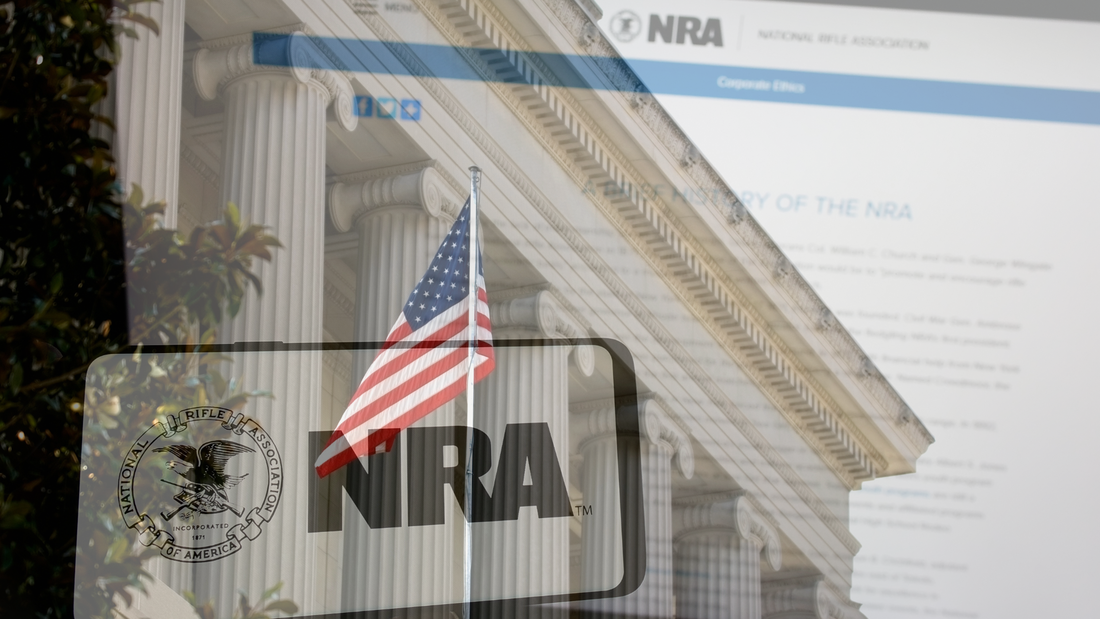
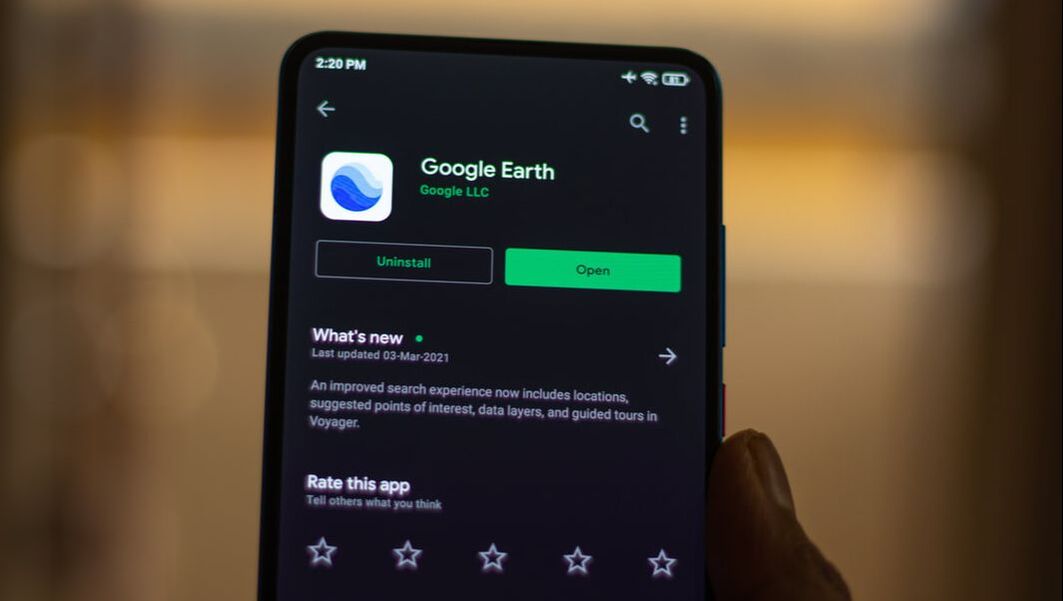

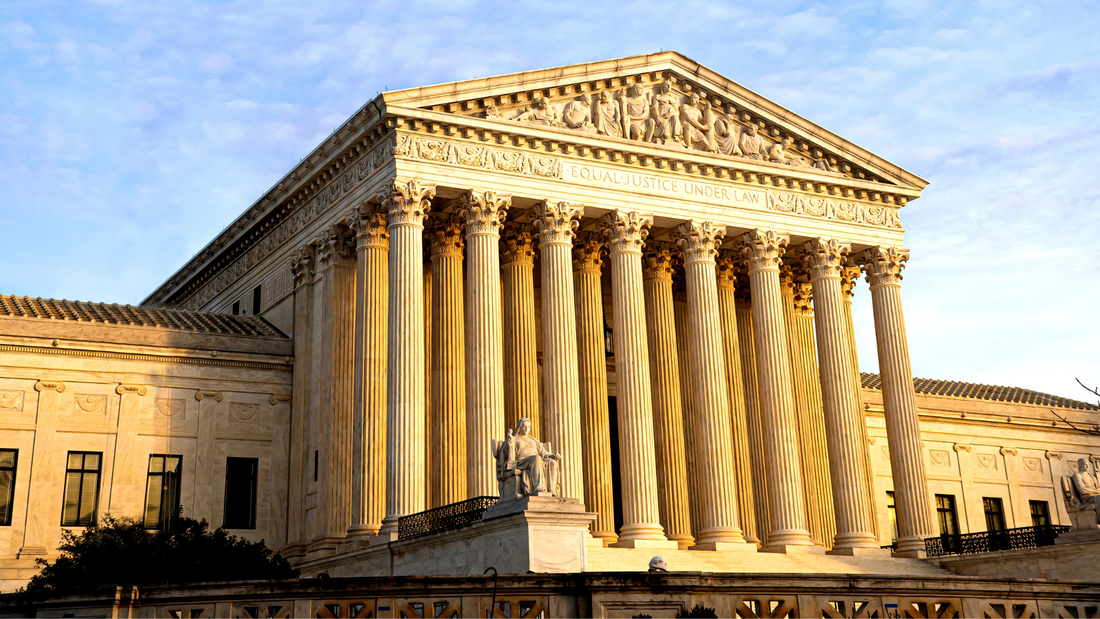
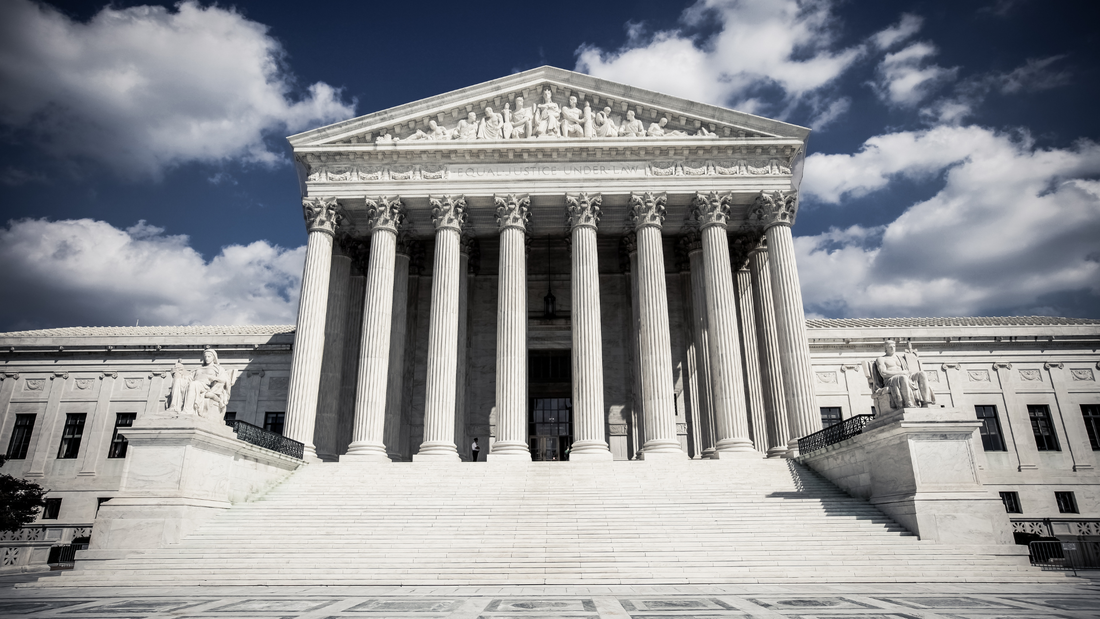

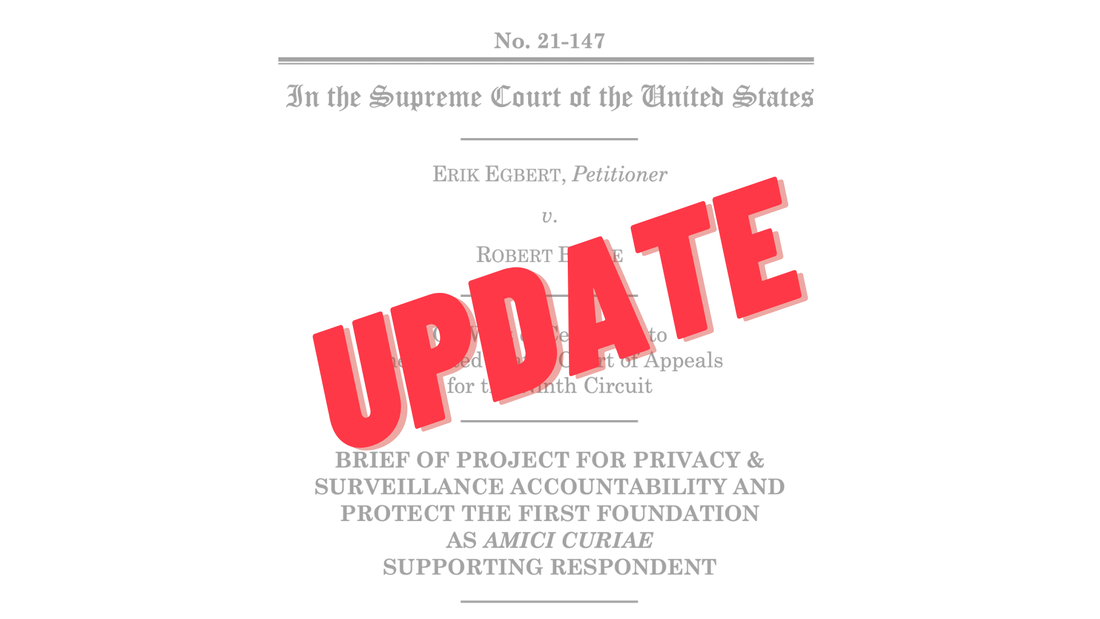
 RSS Feed
RSS Feed